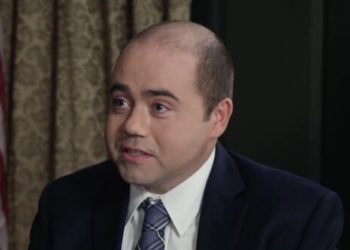If you went to the cardiologist complaining of chest pain, chances are your doctor will order a cardiac CT scan. If you went to the orthopedic surgeon after rolling your ankle, you’ll probably be in the X-ray room within minutes of your arrival. Chronic headaches? CAT scan. Knee trouble? MRI. Pregnancy complications? Ultrasound.
In nearly every medical scenario, doctors insist on knowing what’s going on inside the body.
Why then when we go to the psychiatrist complaining of negative thoughts, overwhelming anxiety, or unexplainable sadness, are we immediately prescribed pills and sent home?
That’s the question that’s long plagued author, psychiatrist, and brain disorder specialist Dr. Daniel Amen, founder of Amen Clinics — a nationally recognized health care clinic that targets the root of mental illness.
The Robertson brothers recently interviewed Dr. Amen about his unique and more holistic approach to mental health. What he reveals about mainstream mental health care is quite shocking.
When Dr. Amen was just 18 years old, he became an infantry medic in the Vietnam War. But he “didn’t like being shot at,” so he transitioned to serve as an X-ray technician, during which time his “passion for medical imaging” was born.
“I fell in love with the only medical specialty that never looks at the organ it treats,” he tells Jase and Al.
Amen clinics have sought to change that with the use of what’s called “brain SPECT imaging,” a scan that “looks at blood flow and activity” as well as “how your brain works.”
What Dr. Amen has learned over his years in the field is that so many mental health issues are misdiagnosed to the detriment of the patient. For example, he remembers one of his first patients who was diagnosed with Alzheimer’s disease after nearly burning her house down from leaving the stove on. When he scanned her brain, however, he found that “she didn’t have Alzheimer’s.” He put her on a different treatment plan to target the real issue, and she “got her memory back.”
“In the United States (really all around the world), almost all psychiatric illnesses — anxiety, depression, bipolar disorder, schizophrenia — they’re made based on symptom cluster diagnoses,” says Dr. Amen.
“You go to your family practice doctor … your psychiatrist, or psychiatric nurse practitioner, you tell them what you’re experiencing or your family does, and they go, ‘Oh, you have this or you have that’ with no biological data,” he says, calling it “insane.”
“Depression can come from low thyroid,” “[living] in a mold-filled environment,” or even in the aftermath of COVID, which Dr. Amen calls “an inflammatory bomb that goes off in your emotional brain.”
Further, “mild traumatic brain injury ruins people’s lives, and nobody knows because nobody looks,” he adds.
When treating various mental health conditions, Dr. Amen isn’t opposed to medications, but it’s never the first or the only thing he considers.
“If I really think you have bipolar disorder, well then I’m going to give you lithium or [lamotrigine], but I’m also going to work hard to get your brain healthy,” he says.
To hear more of Dr. Amen’s groundbreaking discoveries about the brain and how it works, watch the episode above.
Want more from the Robertsons?
To enjoy more on God, guns, ducks, and inspiring stories of faith and family, subscribe to BlazeTV — the largest multi-platform network of voices who love America, defend the Constitution, and live the American dream.
The post Renowned brain imaging specialist condemns mental health care as ‘only medical specialty that never looks at the organ it treats’ appeared first on TheBlaze.




